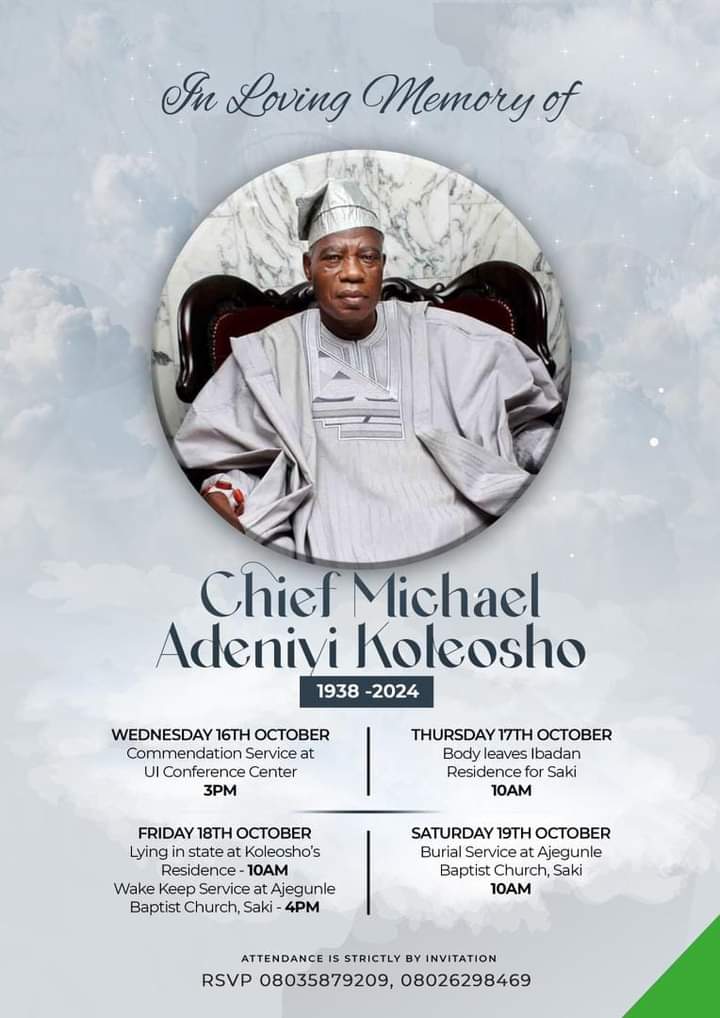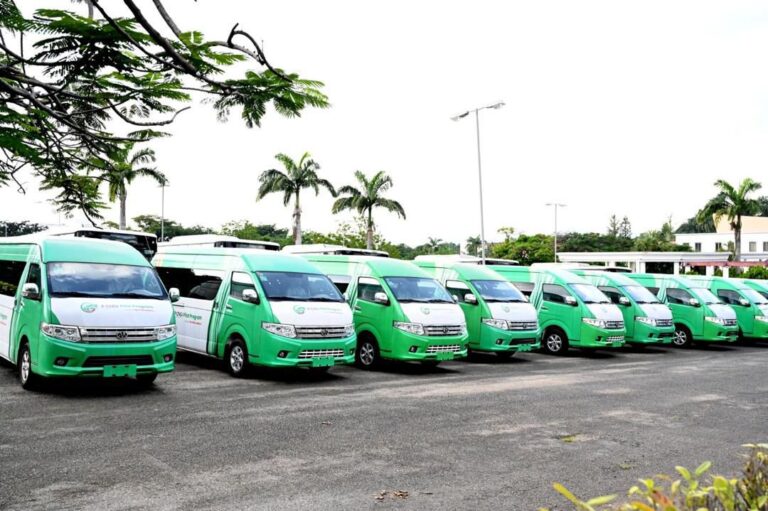As part of Nigeria’s 64th Independence Day celebrations, the Federal Government handed over 64 Compressed Natural Gas (CNG) buses to representatives of the Trade Union Congress (TUC), the Nigerian Labour Congress (NLC), and the National Association of Nigerian Students (NANS) at a ceremony held at the State House Conference Centre, Abuja. The distribution of these buses is seen as a crucial step in reducing transportation costs for Nigerians and boosting public transport efficiency.

Led by the Coordinating Minister of the Economy and Minister of Finance, Wale Edun, the government delegation also included the Minister of Information and National Orientation, Mohammed Idris; the Minister of Budget and Economic Planning, Abubakar Bagudu; and the Minister of State for Youth Development, Ayodele Olawande.
Speaking at the event, Edun explained that the bus handover is in line with President Bola Tinubu’s promise to provide affordable and efficient transportation, especially in the aftermath of the removal of fuel subsidies. He noted that this initiative, part of the Presidential Initiative on Compressed Natural Gas (PCNGi), is designed to alleviate the financial burden on the most vulnerable Nigerians, while also advancing macroeconomic reforms that aim to stabilize the country’s economy.
“This is a transition to cleaner fuel and mass transit,” Edun said. “It’s about intervening on the side of workers to ensure they have access to cheaper transport amidst rising costs.”
He further explained that the 64 buses mark the beginning of a larger plan, which includes the distribution of over 500 CNG buses and 100 electric vehicles across the country. This initiative also reflects Nigeria’s commitment to cleaner energy and its push towards using its natural energy resources to drive industrialization.

Highlighting the economic impact, Edun pointed out that fueling CNG-powered vehicles costs about one-third of what it takes to run petrol-powered vehicles. He added that filling a CNG tank costs as low as N15,000 compared to N50,000 or more for petrol.
Edun also touched on inflation, noting that while the country initially experienced a spike following the removal of fuel subsidies, inflation has now peaked and is on a downward trajectory. “This initiative is one of the ways we are addressing inflation and helping to get the economy moving again,” he said.
In response, the labour and student representatives expressed gratitude to President Tinubu for the gesture and called for more CNG buses to be made available. TUC Secretary-General Comrade Nuhu Toro, NANS President Comrade Lucky Emonefe, and NLC representative Comrade Uche Ekwe all lauded the president’s efforts to support Nigerian workers and students.
Toro thanked Tinubu for implementing the new N70,000 national minimum wage, calling it a vital step towards easing the economic pressures faced by Nigerian workers. Emonefe praised the government’s commitment to student welfare, particularly through the provision of a student loan scheme for higher education. Ekwe emphasized that the benefits of the CNG buses would become more apparent once more vehicles are deployed nationwide, saying, “The more buses we get, the more immediate the impact on Nigerians.”
Michael Oluwagbemi, Programme Director and Chief Executive of PCNGi, provided an update on the progress of the CNG initiative. Since its inception a year ago, over 125 conversion centers have been established, up from just seven, and investment in the sector has surpassed $175 million. He added that 12 new mother stations have been commissioned, with 75 more under construction, and over 34,000 vehicle conversion kits have been ordered, with more than half already distributed.
Vehicle conversions are currently ongoing at 53 centers in eight states, and efforts are underway to expand the program to all 36 states and the Federal Capital Territory (FCT). Technician training is also being scaled up, with 40 new technicians trained each week.
The distribution of CNG buses is a significant component of the Tinubu administration’s broader effort to promote economic stability, reduce inflation, and enhance the country’s public transportation system.

